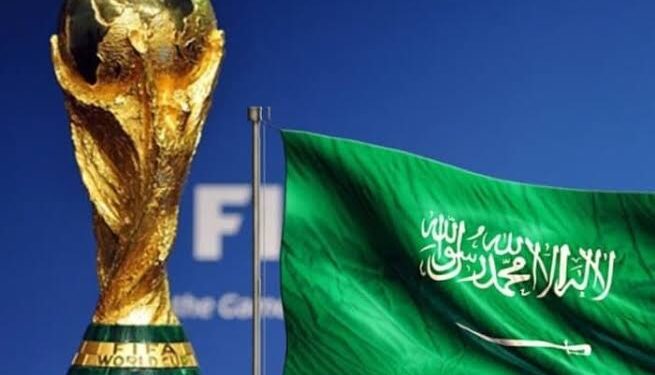FIFA has officially announced Saudi Arabia as the host of the 2034 FIFA World Cup, marking another milestone in the kingdom’s expanding influence on the global sports stage. The decision, made during an online FIFA meeting on December 11, saw over 200 member federations applauding the Saudi bid. FIFA President Gianni Infantino described the move as a “loud and clear” decision, adding that the World Cup would serve as a “unique catalyst for positive social change.”
Saudi Crown Prince Mohammed bin Salman vowed to deliver an “exceptional” tournament, highlighting the country’s commitment to ambitious infrastructure projects, including a futuristic stadium in the Neom mega-city and another atop a cliff near Riyadh.
A Controversial Decision
The announcement, however, has not been without controversy. Critics, including Amnesty International, have called FIFA’s decision “reckless,” citing Saudi Arabia’s questionable human rights record and labor practices. The term “sportswashing” has been frequently used to describe the kingdom’s heavy investments in global sports, seen by some as a strategy to distract from domestic and international criticism.
Saudi Arabia’s growing footprint in global sports includes high-profile soccer contracts funded by its Public Investment Fund, such as Cristiano Ronaldo’s record deal with Al Nassr. While supporters argue that such initiatives promote the sport in the region, detractors remain skeptical about the underlying motives.
FIFA’s Accelerated Process Raises Eyebrows
The bidding process for the 2034 World Cup raised questions, as FIFA’s timeline limited eligibility to Asia and Oceania. With Australia withdrawing its bid early on, Saudi Arabia emerged as the sole contender. This streamlined process has been criticized for restricting competition and transparency.
Infantino defended the process, emphasizing FIFA’s goal of fostering global representation. Yet, skeptics argue that the lack of rival bids diminished the credibility of the decision-making process.
Spain, Portugal, and Morocco to Co-Host 2030 World Cup
The 2034 announcement follows FIFA’s earlier decision to award the 2030 World Cup to Spain, Portugal, and Morocco. The unique six-nation hosting plan includes Argentina, Paraguay, and Uruguay, which will each host one game to commemorate the centenary of the first World Cup held in Uruguay in 1930.
The 2030 tournament will feature 104 matches across these nations, blending history with modernity. This multi-continent approach is seen as a nod to FIFA’s intent to globalize the sport, even as critics point to the logistical and environmental challenges such a model presents.
Massive Investments Ahead for Saudi Arabia
Saudi Arabia’s 2034 World Cup will necessitate unprecedented infrastructure investments, aligning with its Vision 2030 modernization plan. Projects like Neom—a $500 billion futuristic city—and advanced transportation networks will likely dominate preparations.
While FIFA lauds these efforts as steps toward progress, activists urge the organization to ensure that labor reforms are implemented and human rights violations are addressed during construction and preparations.
Global Scrutiny Intensifies
The selection of Saudi Arabia has once again spotlighted the intersection of sports, politics, and human rights. As the world anticipates the 2034 tournament, the kingdom faces mounting pressure to balance its ambitious vision with ethical accountability.
With both the 2030 and 2034 World Cups promising unprecedented formats and hosting arrangements, FIFA’s decisions mark a turning point for the sport. Yet, they also underline the persistent tensions between expansionist goals and fundamental values.
Related Stories:
The FIFA World Cup 2022 will use footballs made in Pakistan.
FIFA’s Silence on Israel: The Growing Push for a Soccer Ban Amid Gaza Crisis
Saudi Arabia Shifts Focus from US Defence Treaty Amid Israel Normalisation Stalemate
















